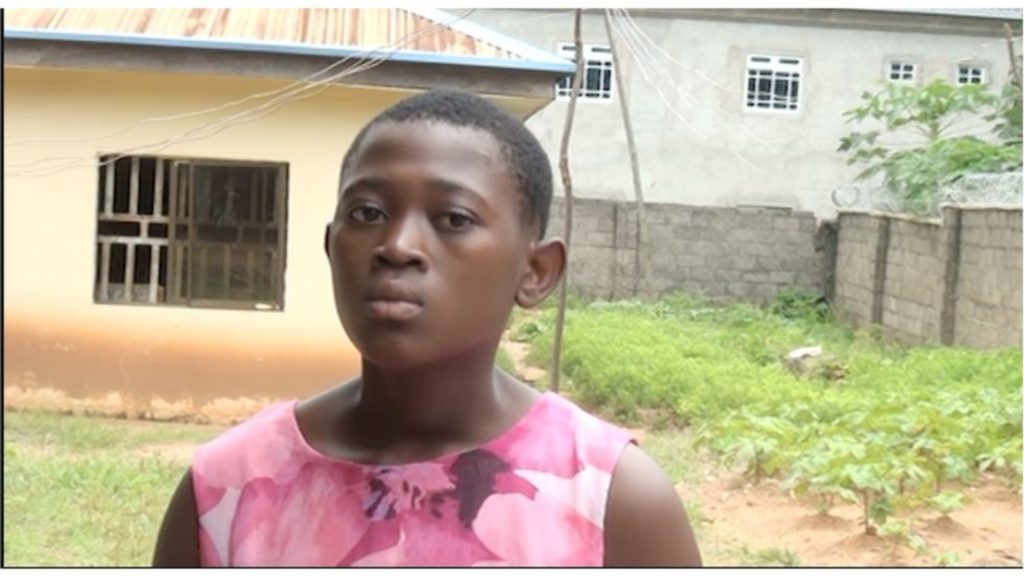On October 17, 2018, Nigeria woke up to one of the most heartbreaking stories of child abuse in the country’s history.
13-year-old Ochanya Elizabeth Ogbanje, a bright, soft-spoken student of Federal Government Girls’ College, Gboko died after years of alleged sexual abuse at the hands of people who were supposed to protect her.
Her death sparked outrage across Nigeria, with the hashtag #JusticeForOchanya flooding social media, but seven years later, the people accused of abusing her still haven’t fully faced justice. The case continues to raise difficult questions about how Nigeria handles sexual violence against children.
Here are five important things you need to know about the Ochanya case:
1. Ochanya’s story is one of betrayal and silence
Ochanya was sent to live with her relatives, the Ogbuja family in Benue State so she could attend school.
Instead of finding safety, she was allegedly sexually assaulted repeatedly by her guardian, Andrew Ogbuja, a lecturer at Benue State Polytechnic and his son, Victor Ogbuja.
The abuse reportedly began when she was just 8 years old and continued for several years. It left her with serious health complications, including vesico-vaginal fistula (VVF), a condition caused by repeated sexual trauma. She eventually died in 2018 as a result of these complications.
2. Two men were accused but only one was ever tried
After her death, both Andrew and his son Victor were accused of rape. However, only Andrew Ogbuja, the father ever faced trial. His son Victor went into hiding and has remained at large for years.
The Benue State Government charged Andrew with rape and causing death, while Victor’s case never progressed because he was never arrested.
This gap of one suspect on trial and the other missing became a symbol of Nigeria’s weak justice system, especially in sexual violence cases.
3. The legal system failed to deliver justice
In April 2022, the Benue State High Court in Makurdi acquitted Andrew Ogbuja, saying the prosecution failed to prove its case beyond reasonable doubt. The decision shocked many Nigerians who had followed the trial closely.
Meanwhile, Andrew’s wife, Felicia Ochiga-Ogbuja, who was Ochanya’s caregiver, was found guilty of negligence for failing to protect the child despite knowing what was going on.
She was sentenced to five months in prison, a sentence many saw as painfully light compared to the suffering Ochanya endured.
4. The fight for justice continues
Ochanya’s family, child-rights activists, and NGOs like Sisterhood Initiative and Women Aid Collective (WACOL) have continued to push for justice.
Every year since her death, they’ve held memorials, renewed petitions, and called on the Inspector General of Police to arrest Victor and reopen the case.
Despite the court acquittal, public pressure hasn’t died down. The case remains a national conversation about how easily child abusers escape accountability in Nigeria.
5. Ochanya’s case exposed systemic failures
Beyond the individuals involved, this case exposed deep flaws in Nigeria’s justice system:
- Poor investigation: Evidence wasn’t properly preserved or followed up.
- Slow prosecution: The case dragged on for years, allowing suspects to evade justice.
- Weak child protection laws: Even with the Child Rights Act, enforcement remains inconsistent across states.
- Cultural silence: In many communities, sexual abuse is still covered up to “protect family name.”
Ochanya’s death became a wake-up call reminding Nigerians that laws mean nothing if systems remain broken.
Final Thoughts
Seven years later, the little girl who once dreamed of becoming a nurse is gone but her story still speaks loudly.
Ochanya’s case isn’t just about one victim. It’s about every Nigerian child who has been silenced by fear, culture or a failed justice system.
Until her abusers face full accountability, #justiceforOchanya remains unfinished business.
And as citizens, journalists and advocates keeping her story alive is one way to ensure it never happens again.
Follow Lists NG on Facebook, Instagram, X, and TikTok for more.




This is Hurting